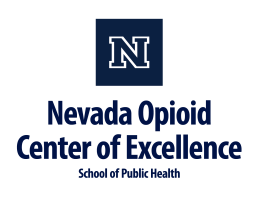Addiction Technology Transfer Centers (ATTC)
The ATTC Network is an international, multidisciplinary resource for professionals in the addictions treatment and recovery services field. Established in 1993 by the Substance Abuse and Mental Health Services Administration (SAMHSA), the ATTC Network is comprised of 10 U.S.-based Centers and a Network Coordinating Office. Together the Network serves the 50 U.S. states, the District of Columbia, Puerto Rico, the U.S. Virgin Islands, and the Pacific Islands of Guam, American Samoa, Palau, the Marshall Islands, Micronesia, and the Mariana Islands.
Prevention Technology Transfer Centers (PTTC)
The purpose of the Prevention Technology Transfer Center (PTTC) Network is to improve implementation and delivery of effective substance use prevention interventions, and provide training and technical assistance services to the substance misuse prevention field. It does this by developing and disseminating tools and strategies needed to improve the quality of substance misuse prevention efforts; providing intensive technical assistance and learning resources to prevention professionals in order to improve their understanding of prevention science, epidemiological data, and implementation of evidence-based and promising practices; and, developing tools and resources to engage the next generation of prevention professionals.
Established in 2018 by the Substance Abuse and Mental Health Services Administration (SAMHSA), the PTTC Network is comprised of 10 Domestic Regional Centers and a Network Coordinating Office. Together the Network serves the 50 U.S. states, the District of Columbia, Puerto Rico, the U.S. Virgin Islands, and the Pacific Islands of Guam, American Samoa, Palau, the Marshall Islands, Micronesia, and the Mariana Islands.
Mental Health Technology Transfer Centers (MHTTC)
The purpose of the MHTTC Network is technology transfer – disseminating and implementing evidence-based practices for mental disorders into the field.
Funded by the Substance Abuse and Mental Health Services Administration (SAMHSA), the MHTTC Network includes 10 Regional Centers and a Network Coordinating Office.
Opioid Response Network (ORN)
The Substance Abuse and Mental Health Services Administration funded the State Opioid Response/ Tribal Opioid Response – Technical Assistance grant to the American Academy of Addiction Psychiatry in collaboration with the Addiction Technology Transfer Center Network, Columbia University Division on Substance Use Disorders and a large national coalition. This coalition forms the Opioid Response Network to provide free training and education to address opioid, stimulant and all substance use disorders.
Providers Clinical Support System (PCSS)
PCSS-MOUD is a program funded by the Substance Abuse and Mental Health Services Administration (SAMHSA) created in response to the opioid overdose epidemic to train primary care providers in the evidence-based prevention and treatment of opioid use disorders (OUD) and treatment of chronic pain. The project is geared toward primary care providers who wish to treat OUD. PCSS-MOUD is made up of a coalition, led by American Academy of Addiction Psychiatry (AAAP), of major healthcare organizations all dedicated to addressing this healthcare crisis. Through a variety of trainings and a clinical mentoring program, PCSS-MOUD’s mission is to increase healthcare providers’ knowledge and skills in the prevention, identification, and treatment of substance use disorders with a focus on opioid use disorders.
